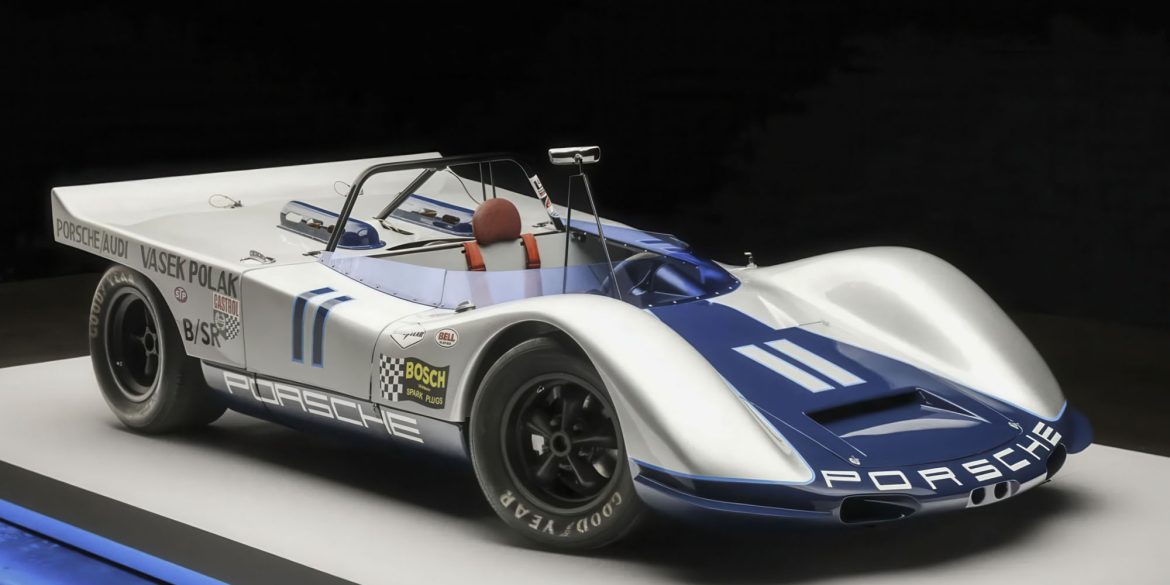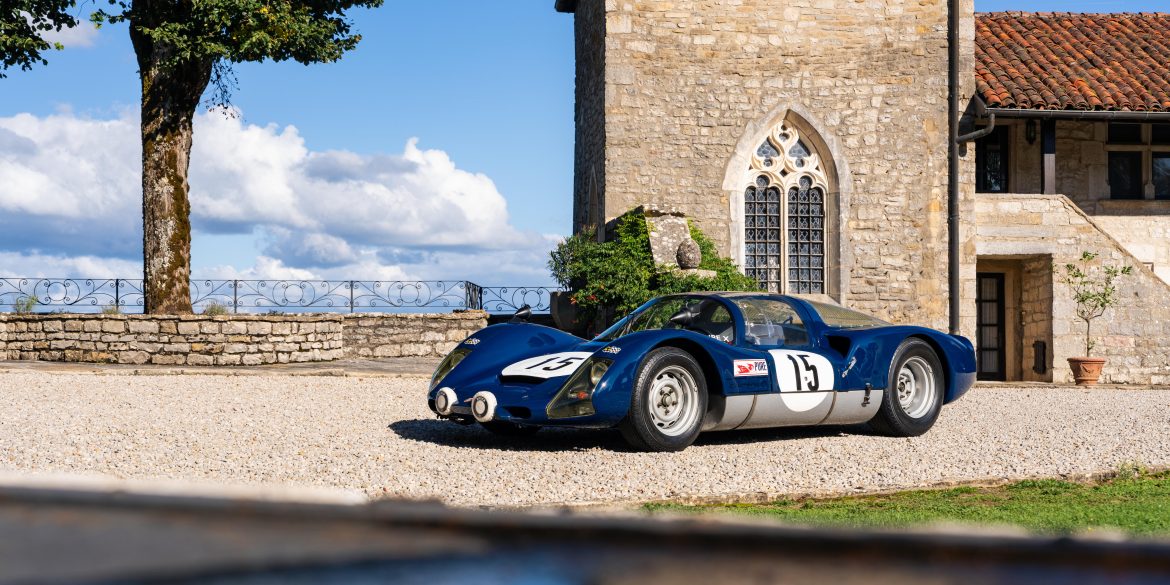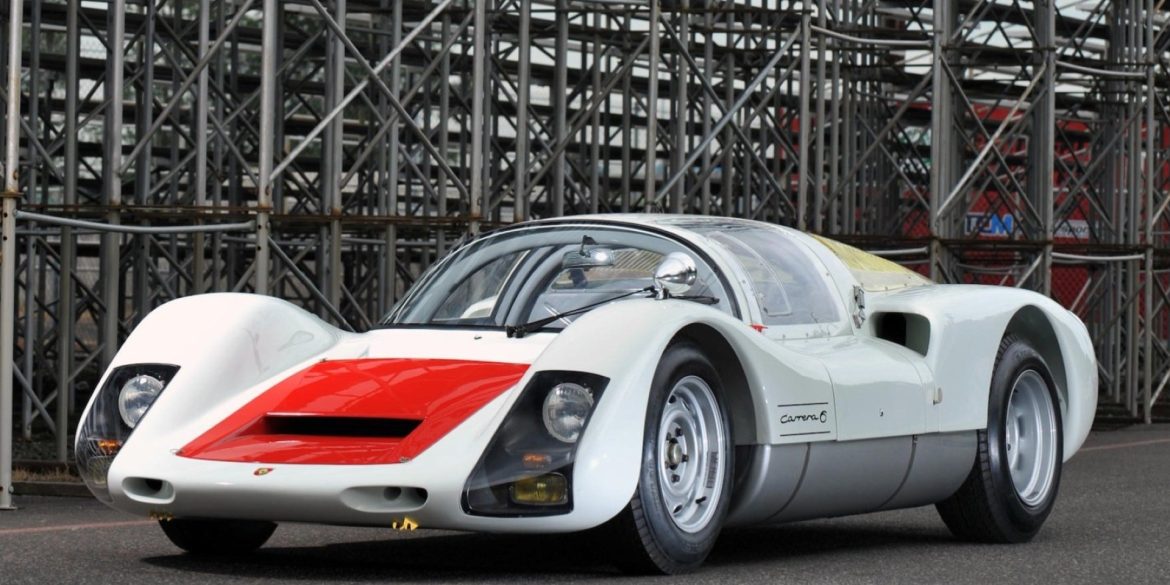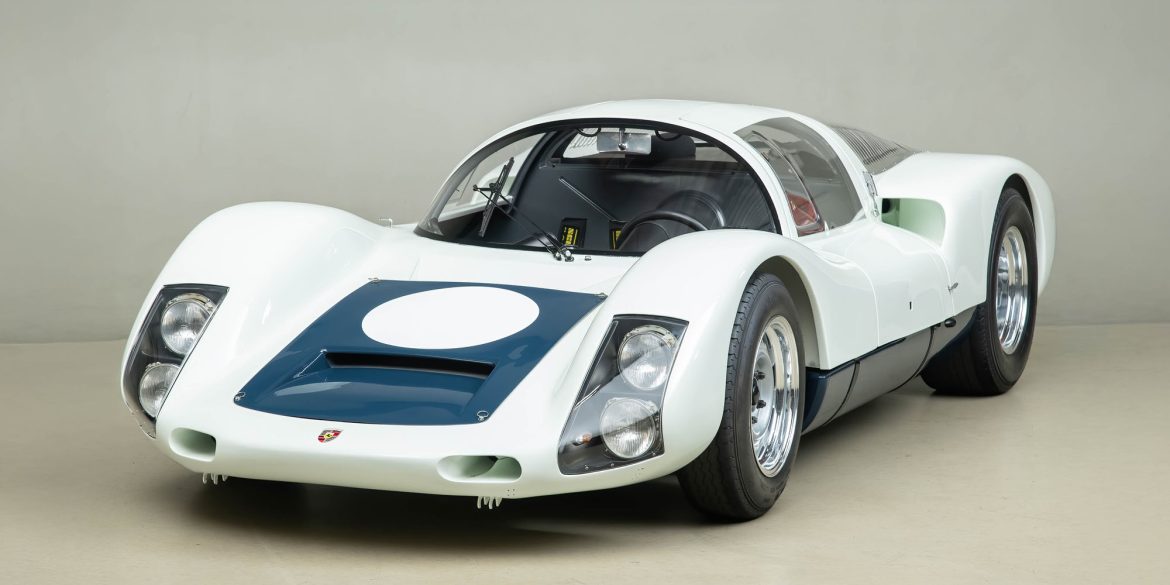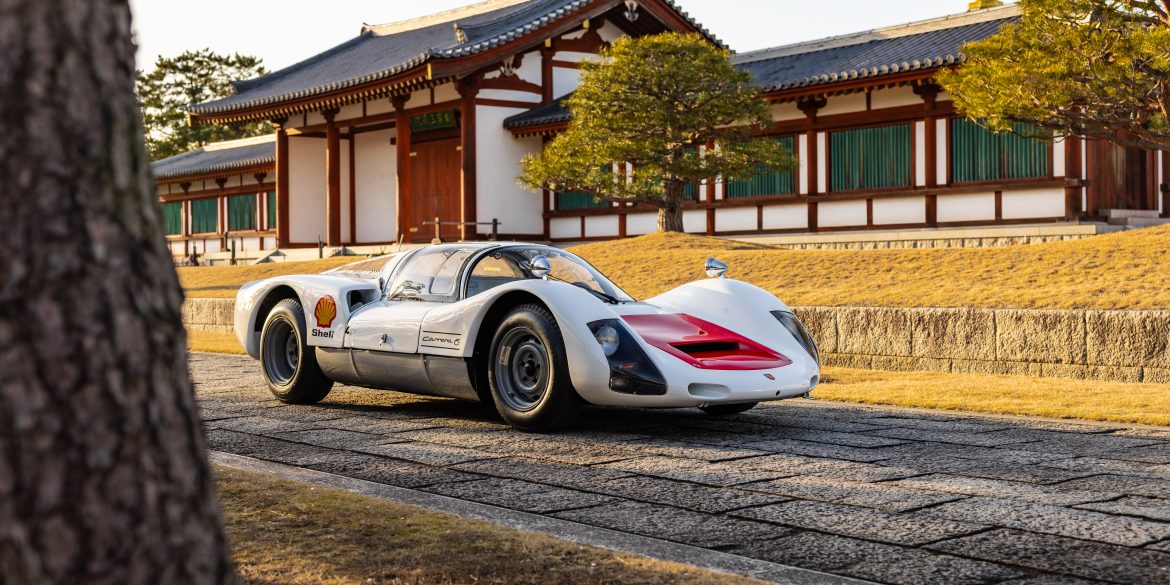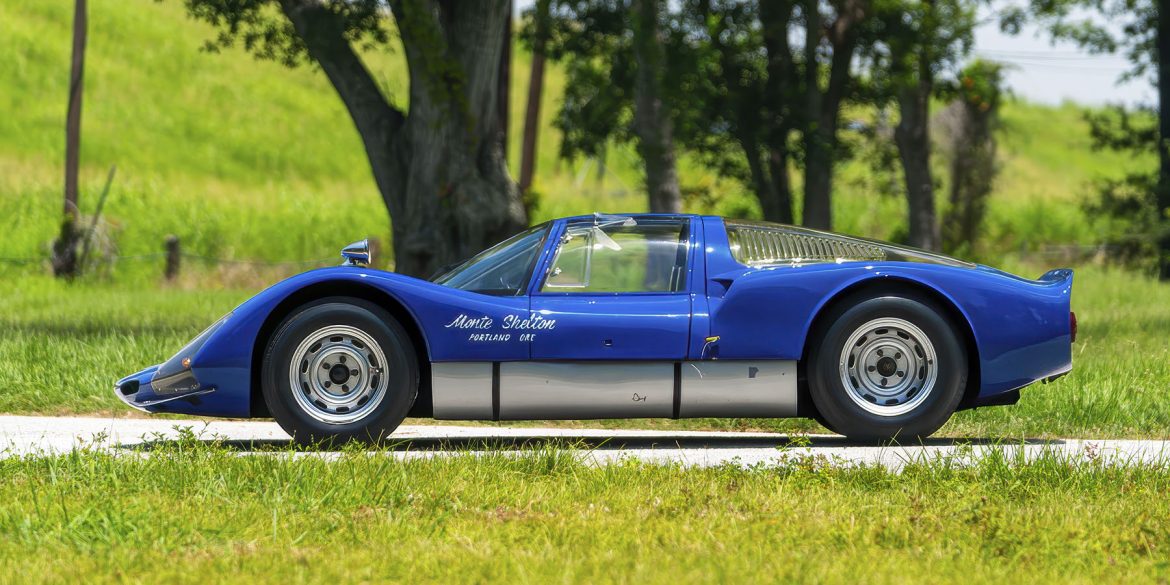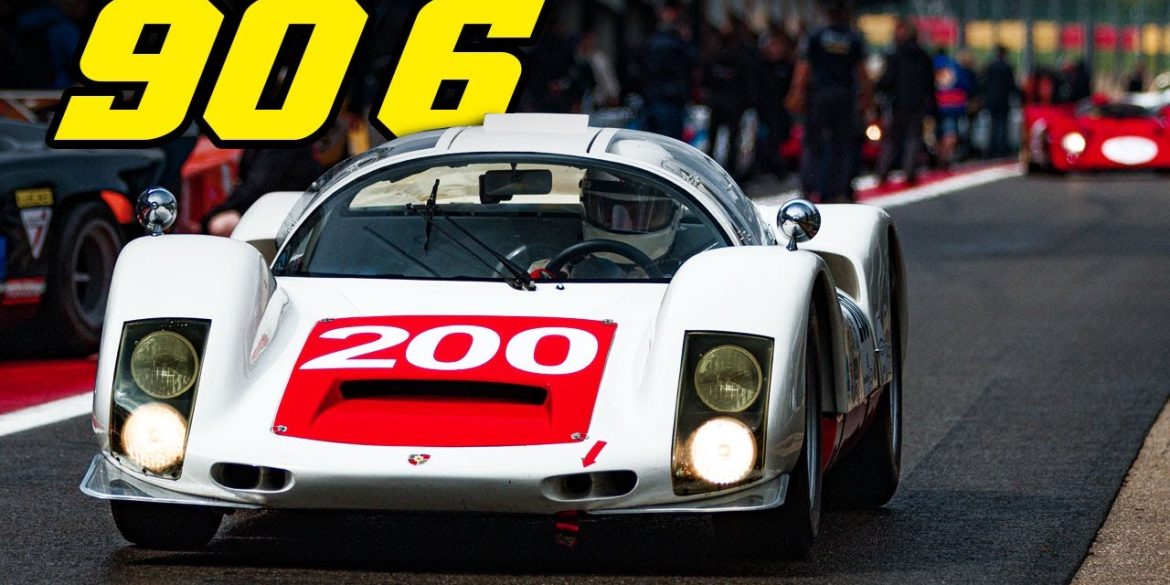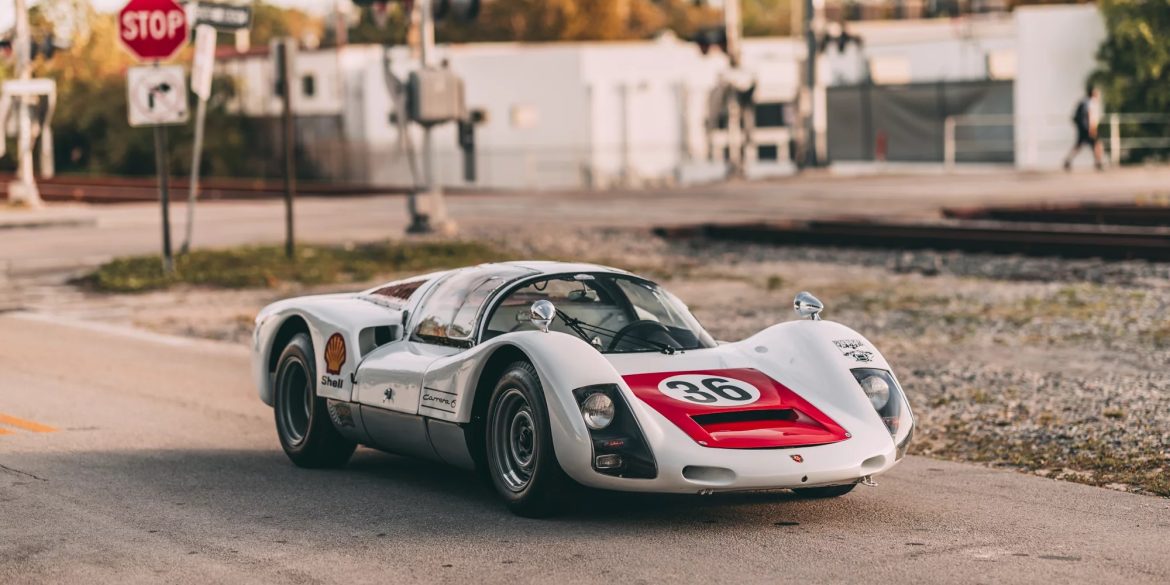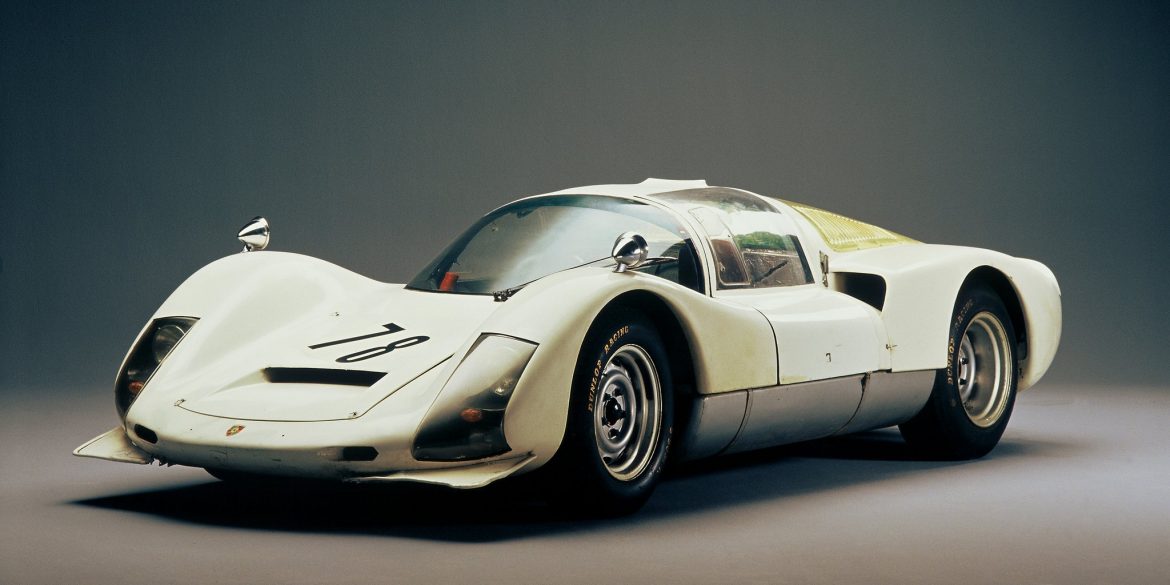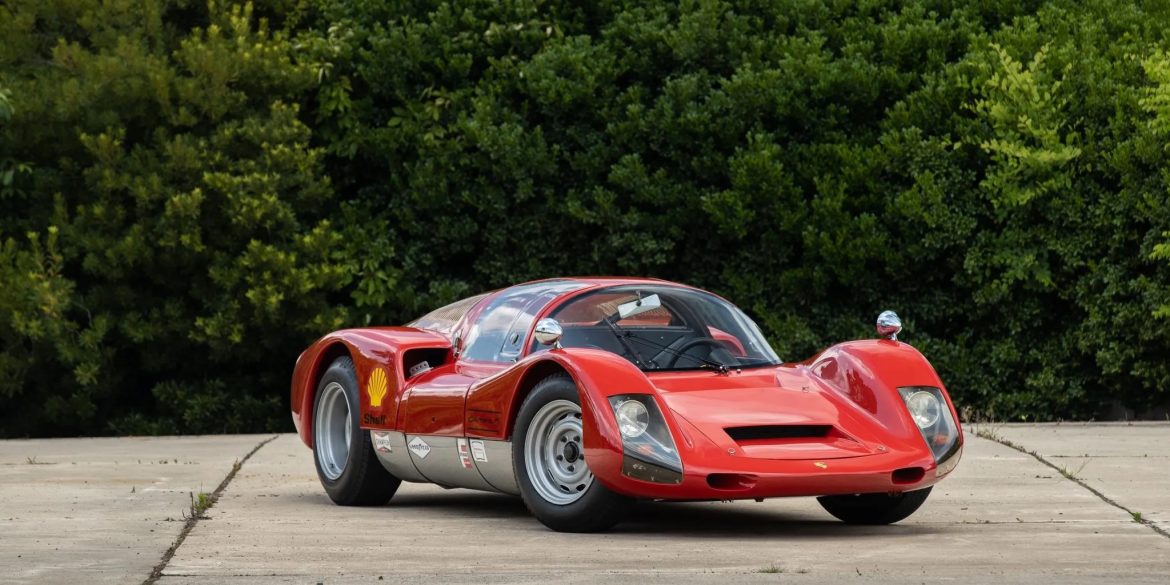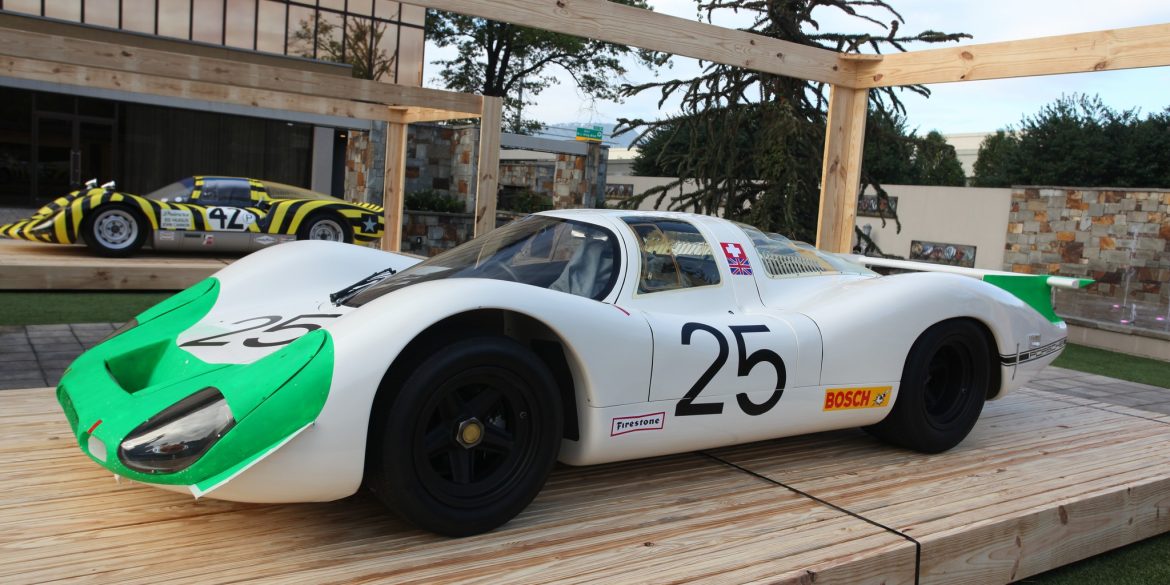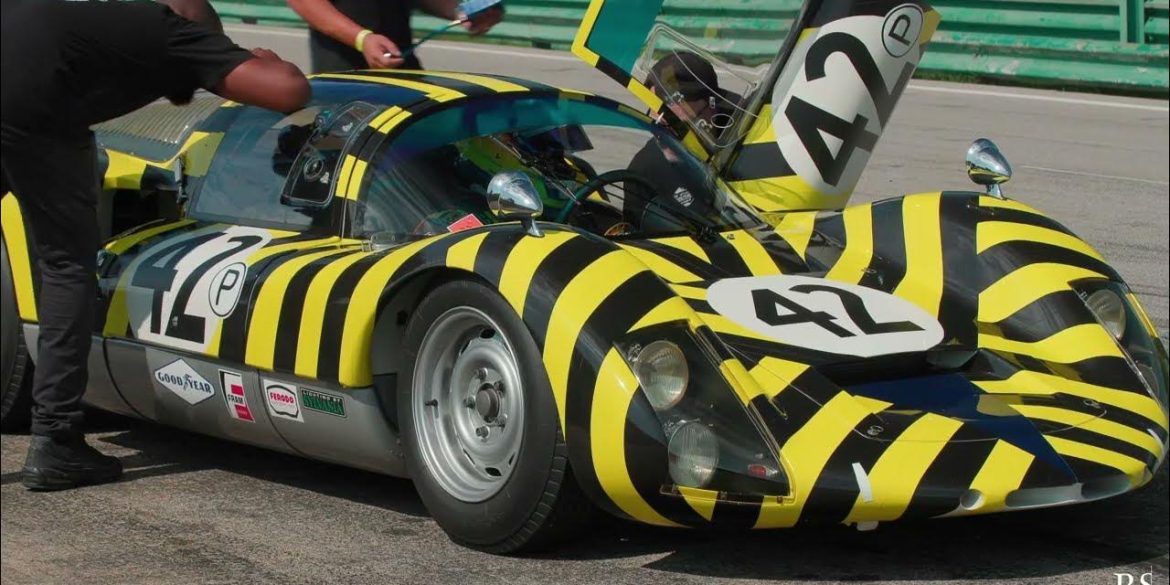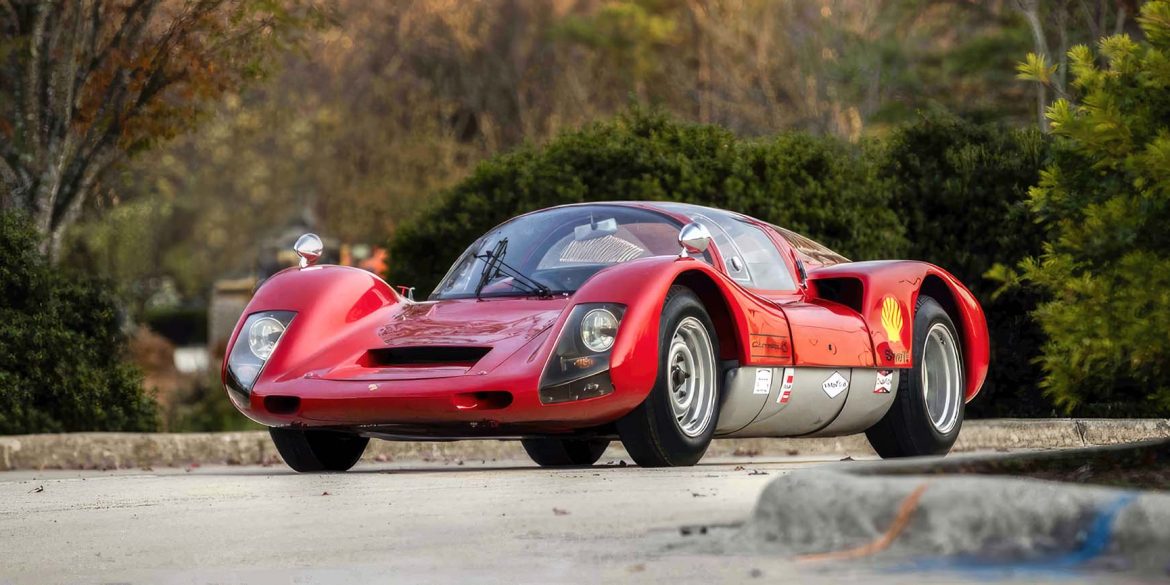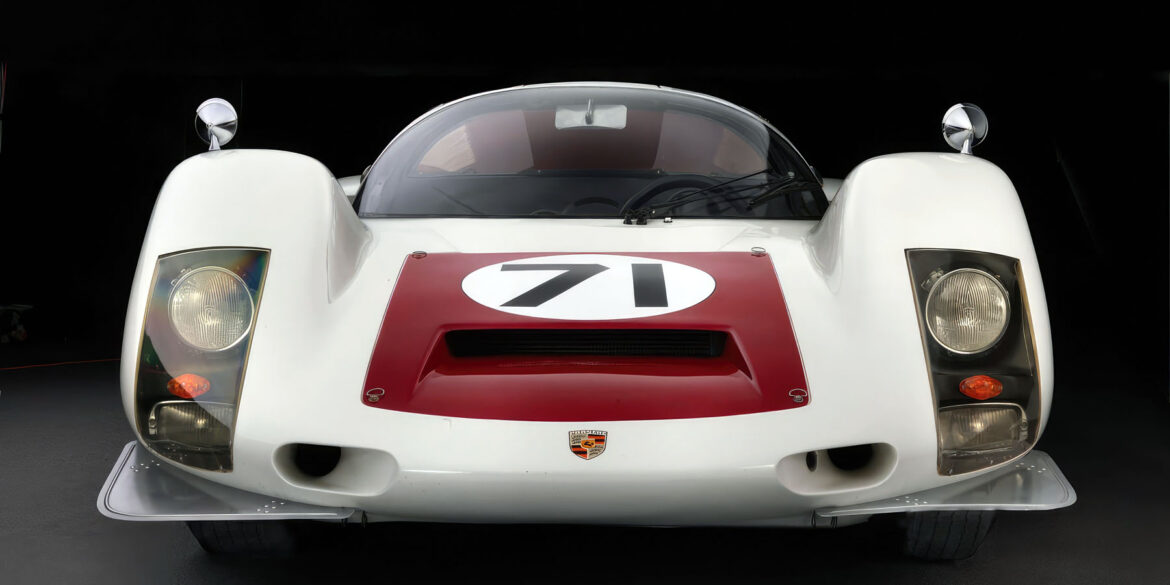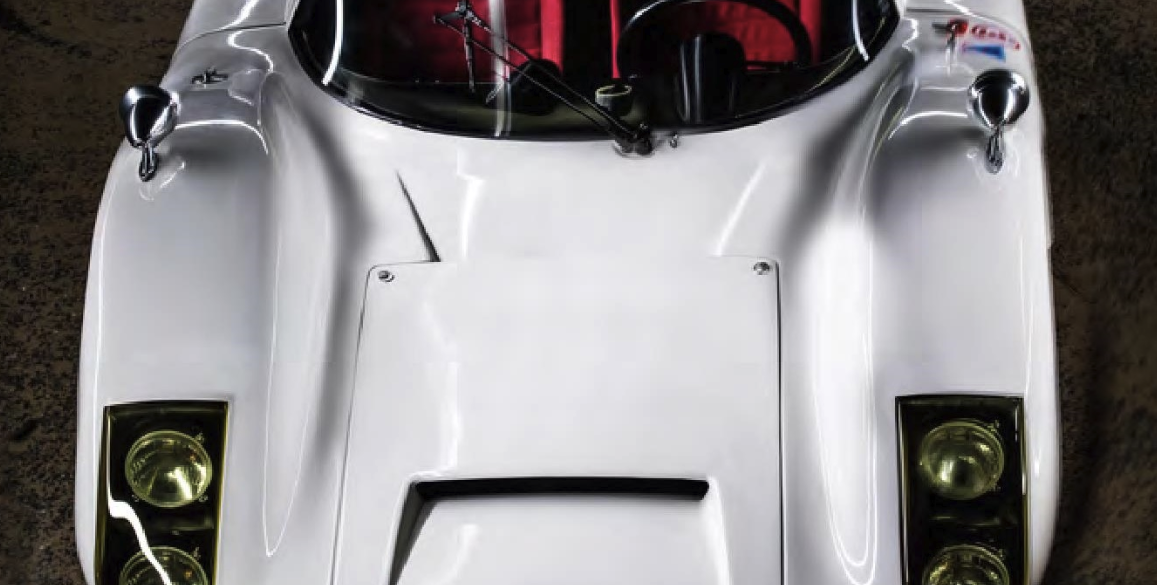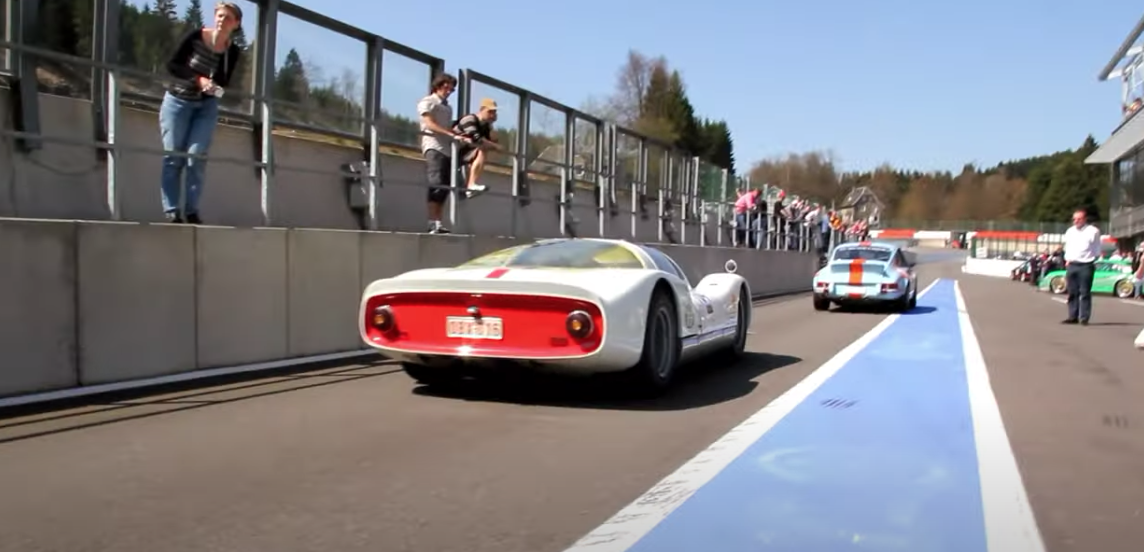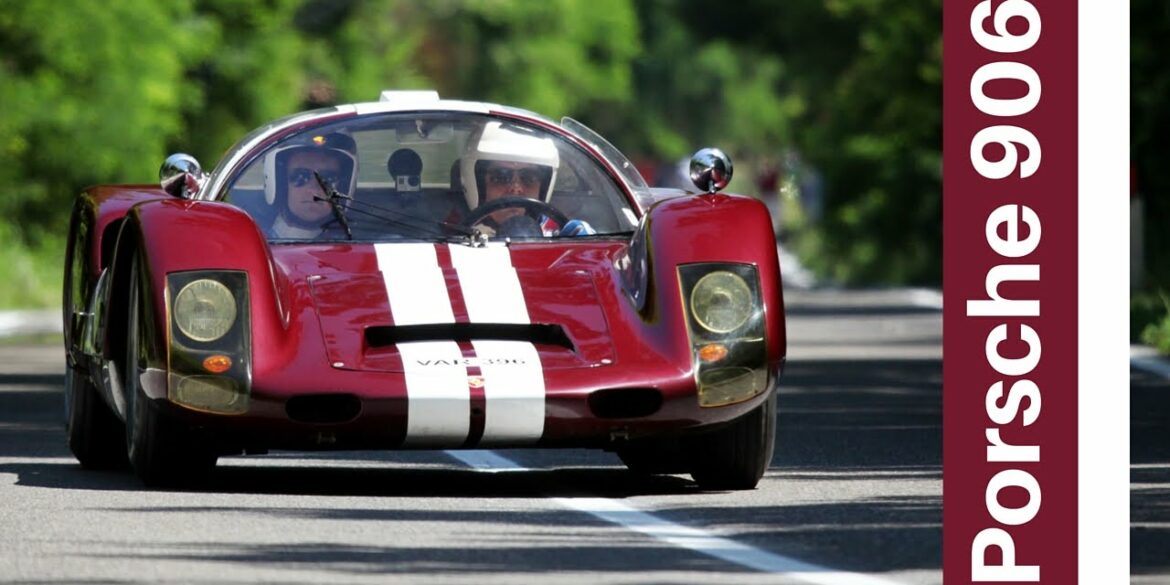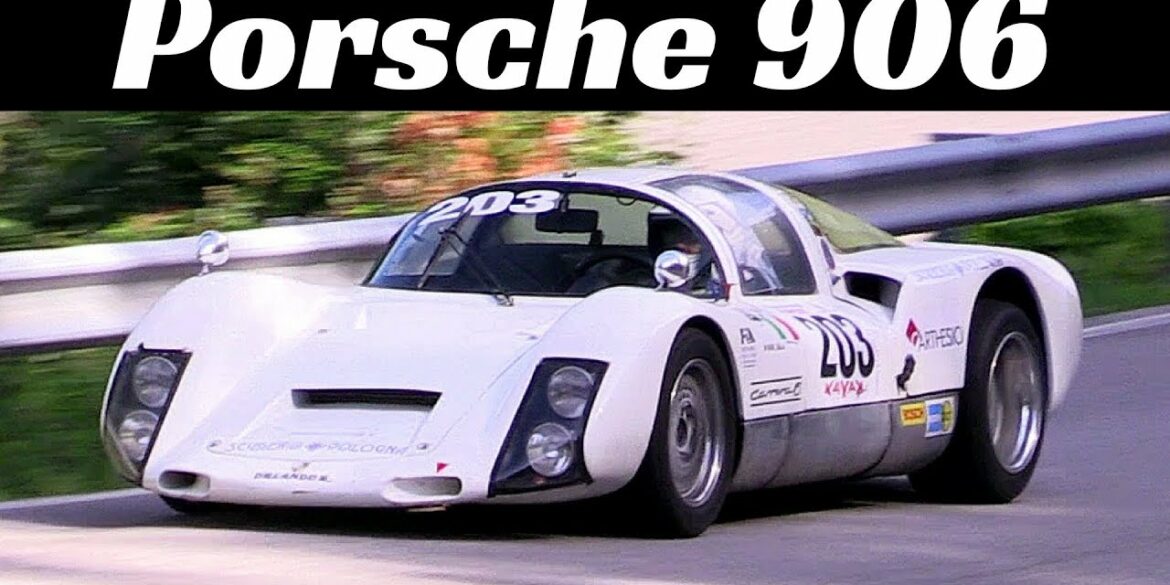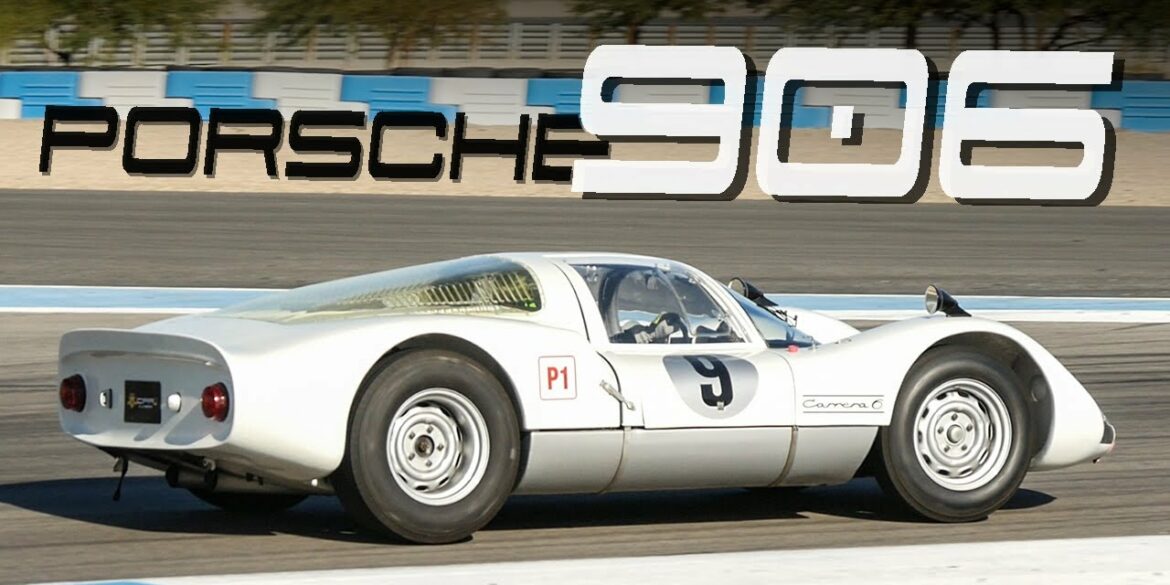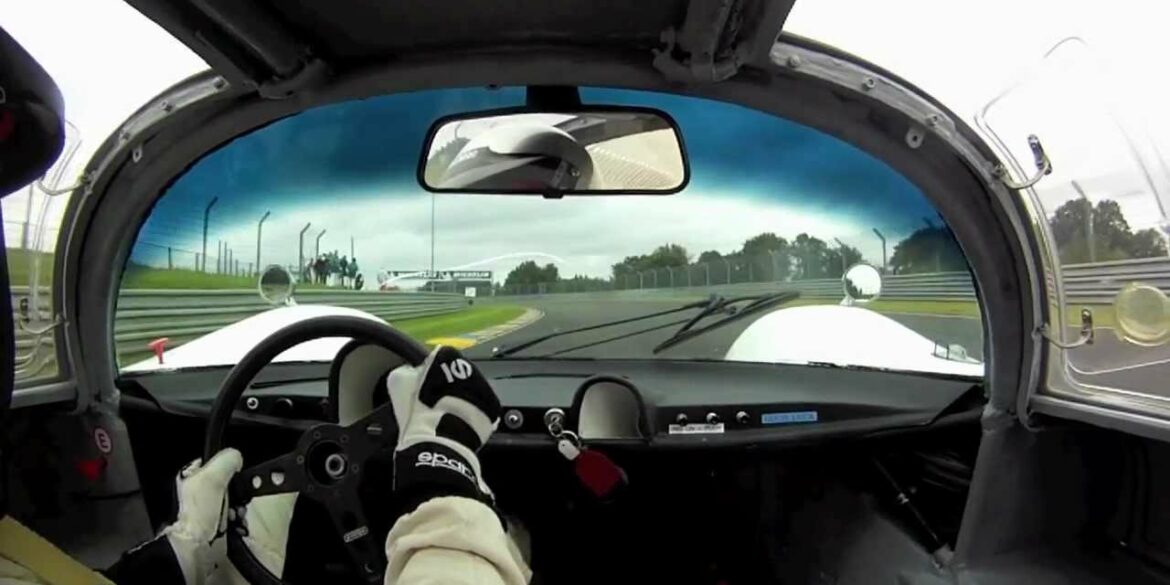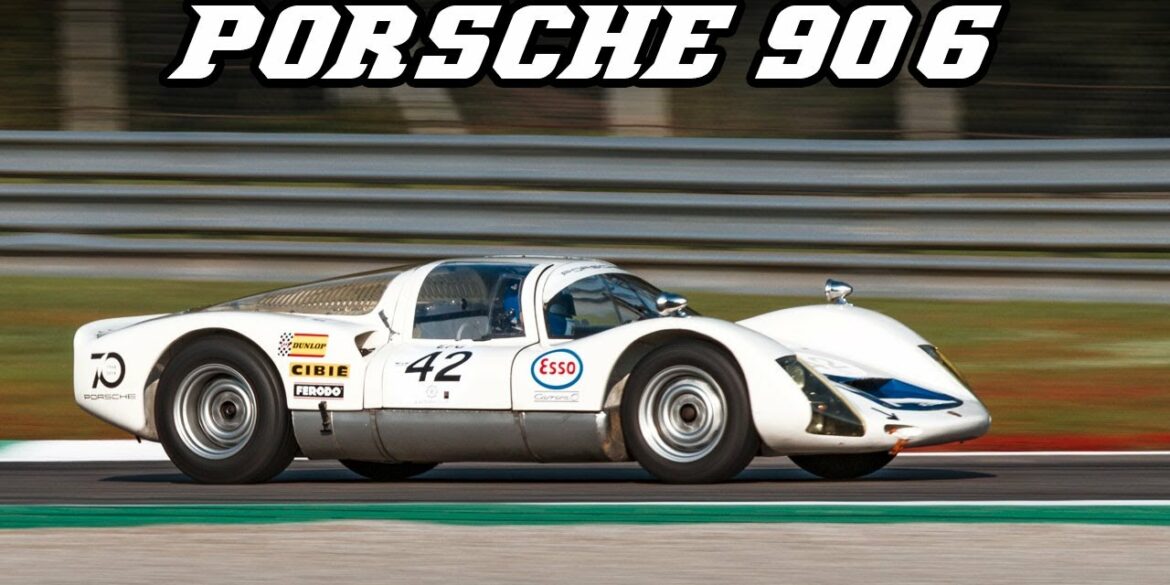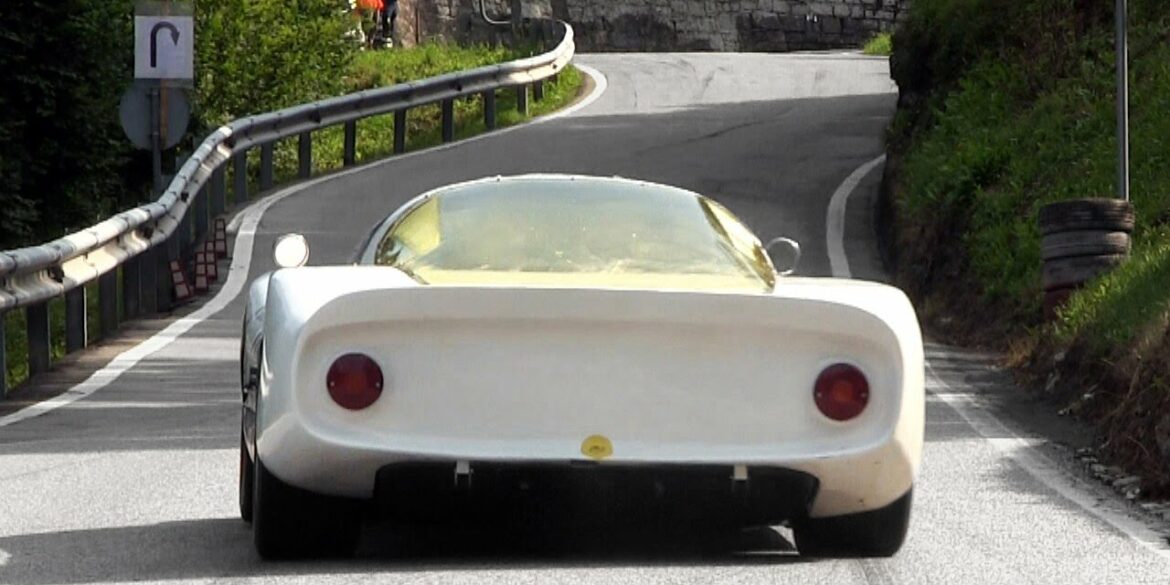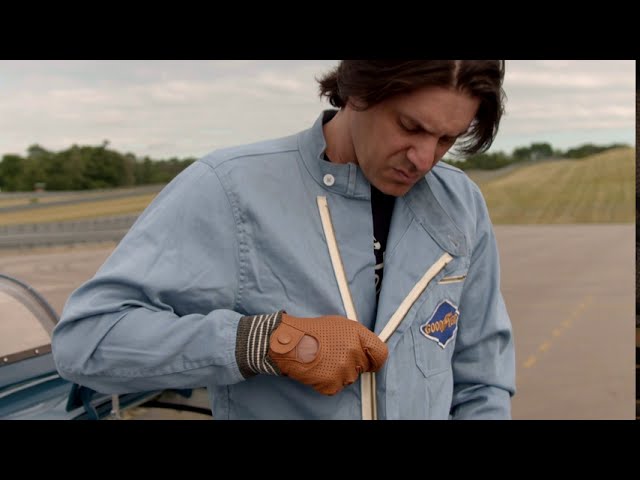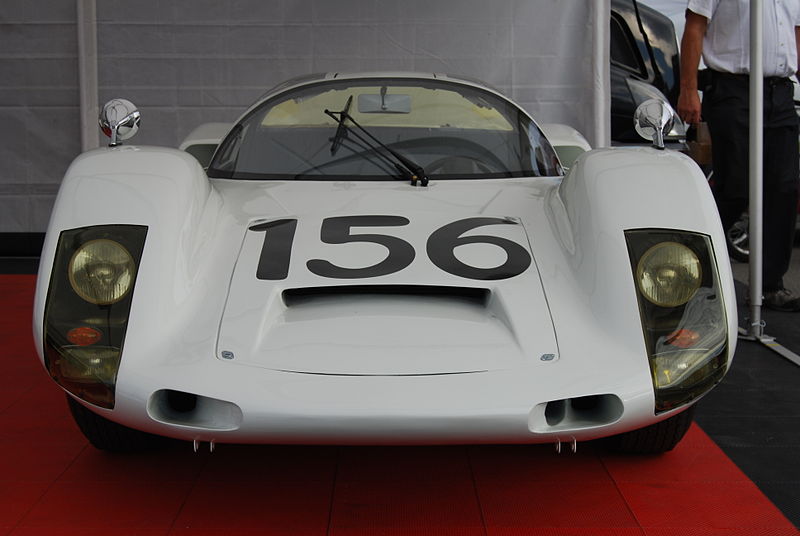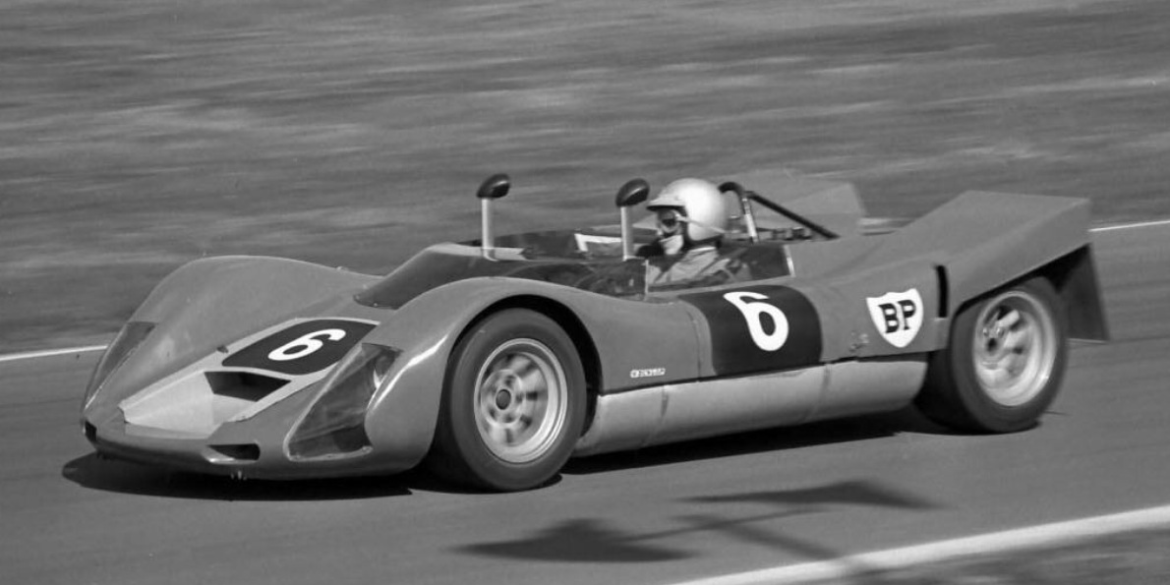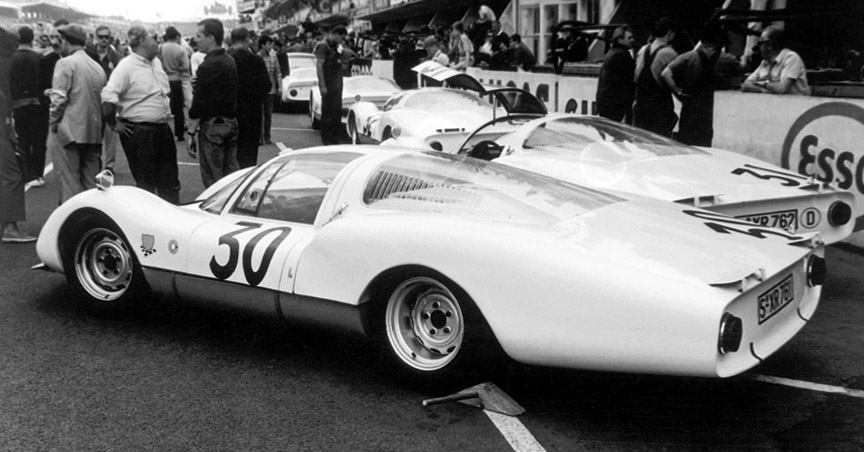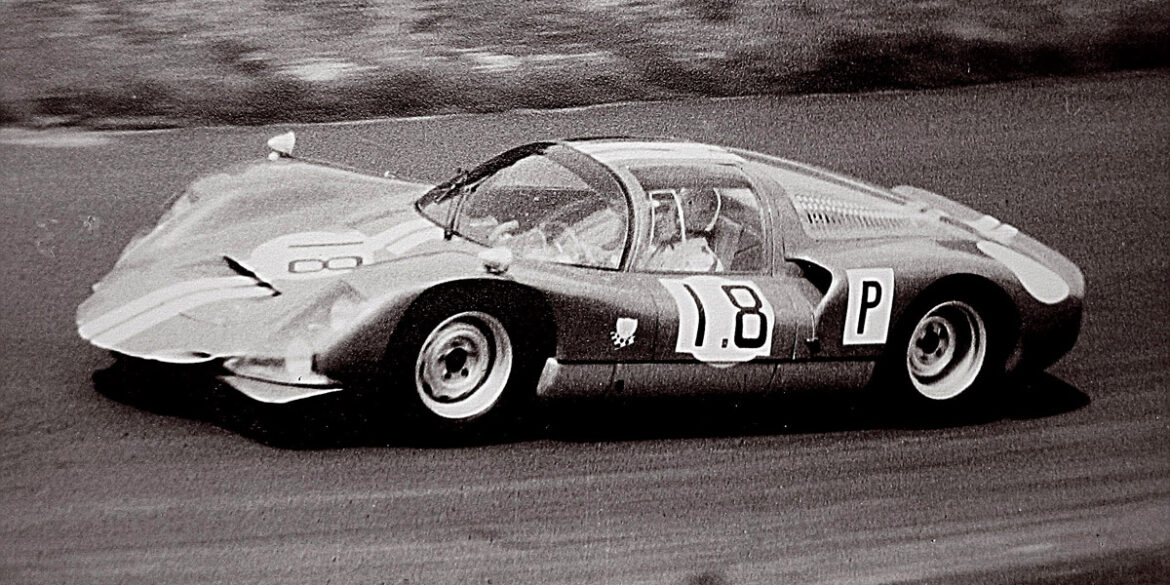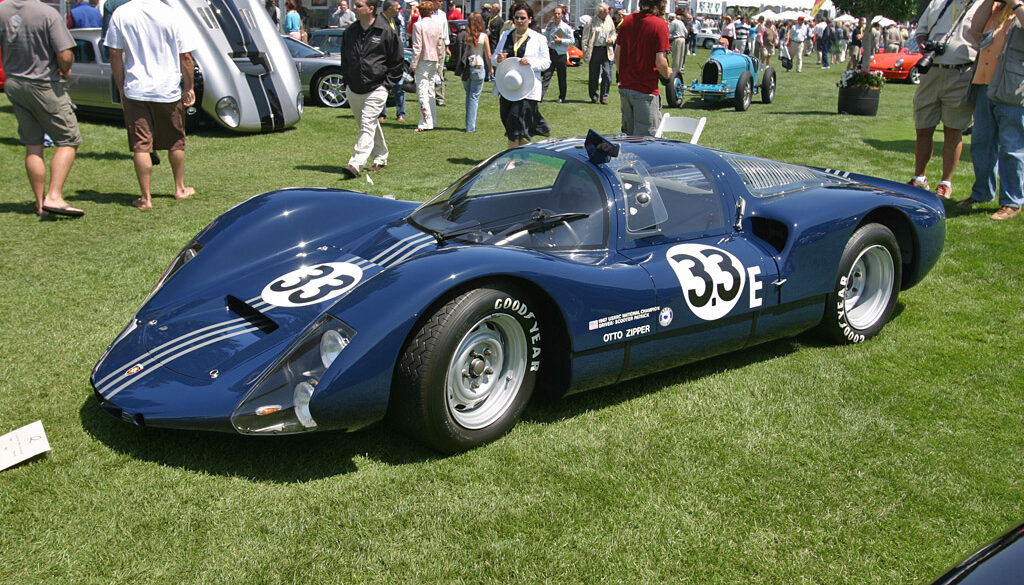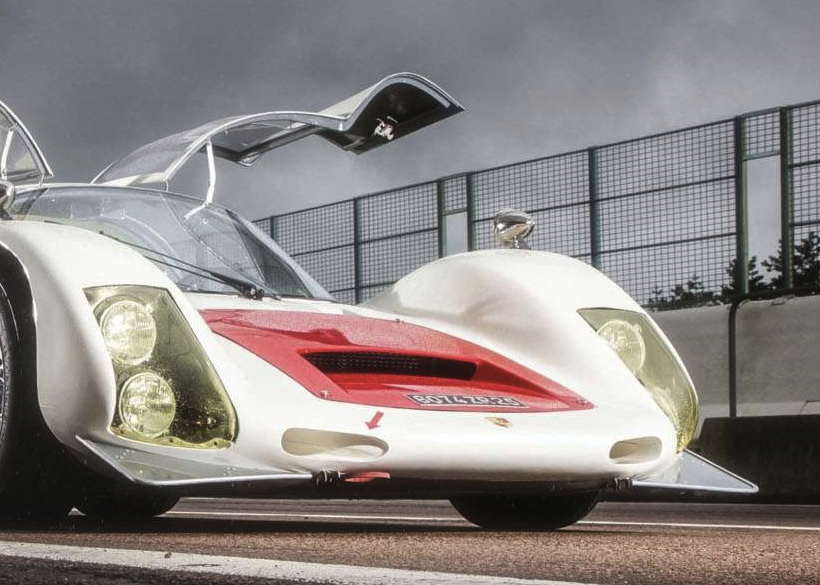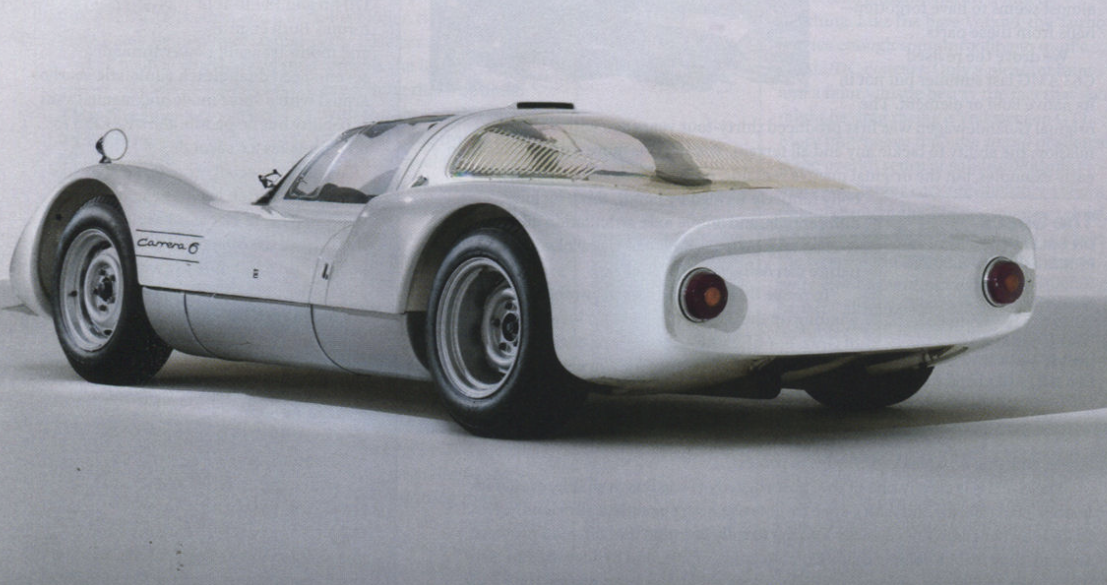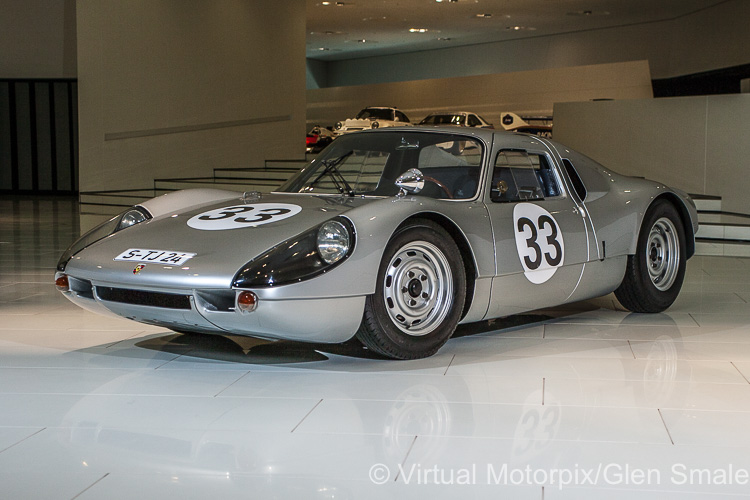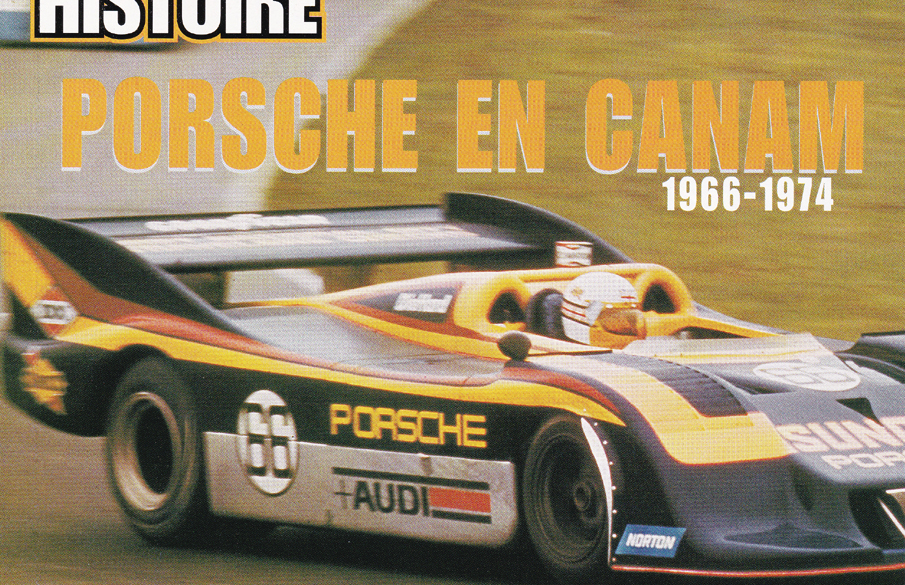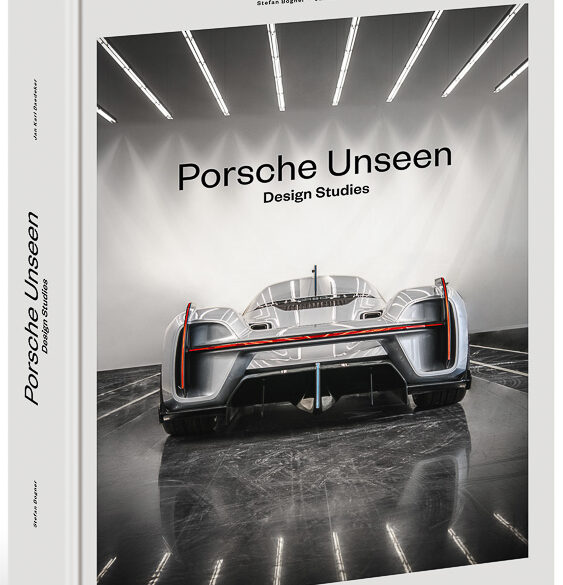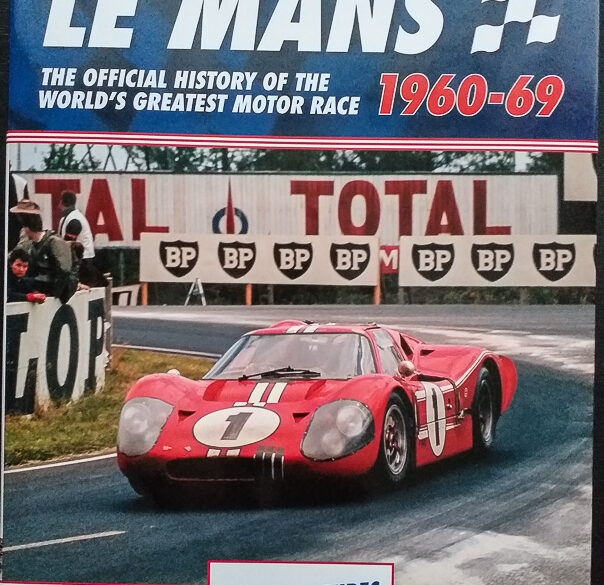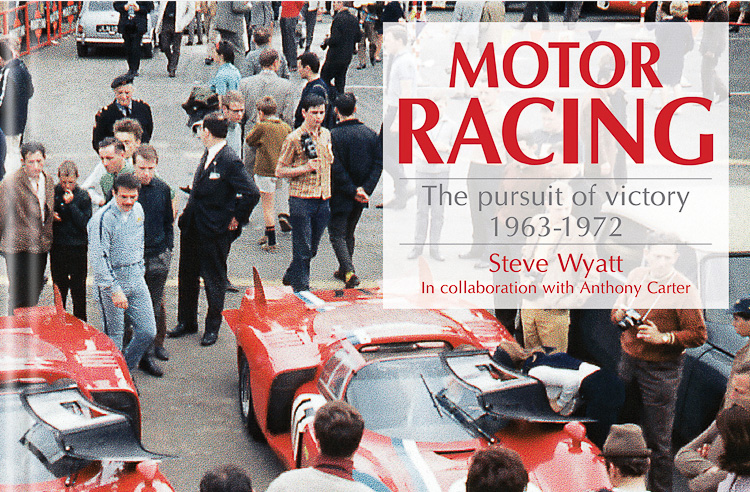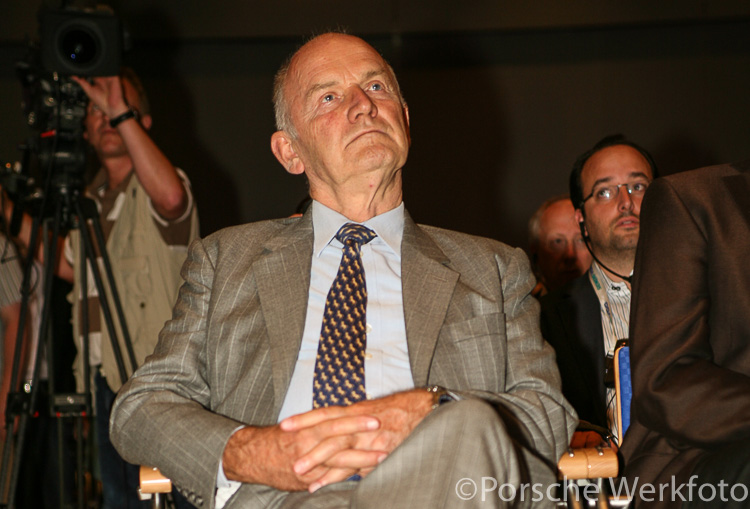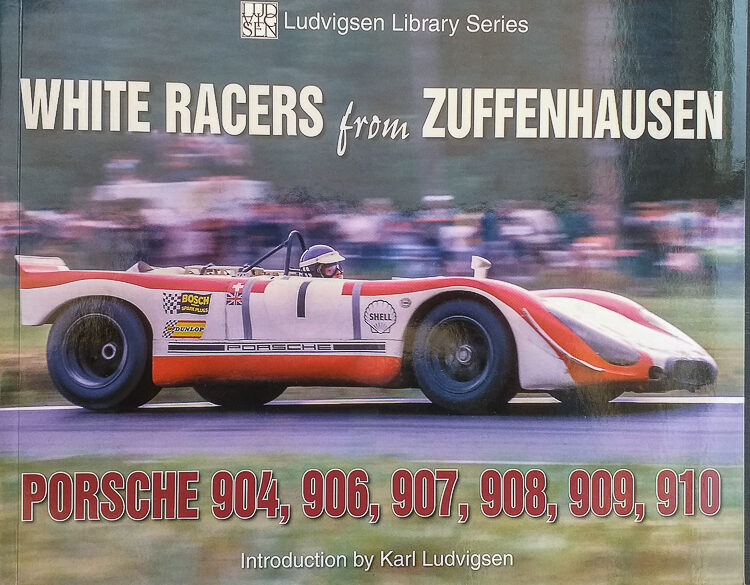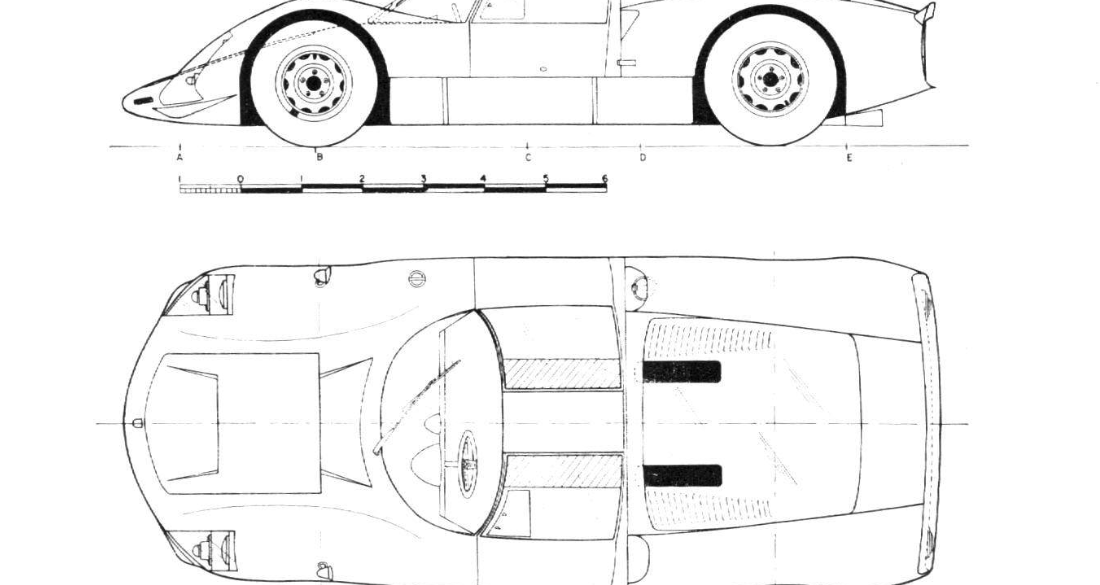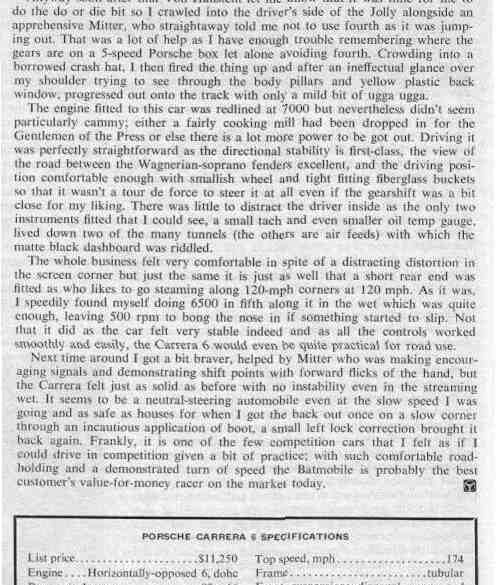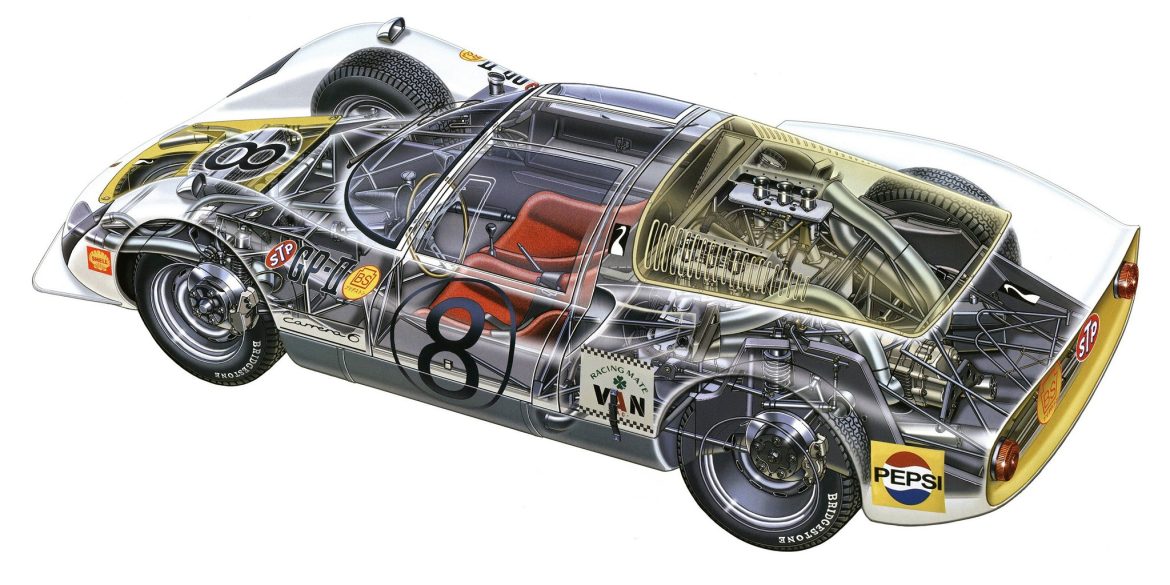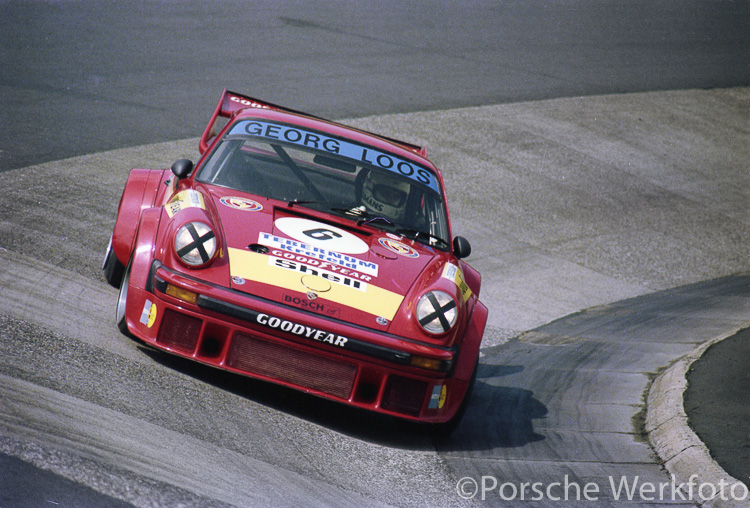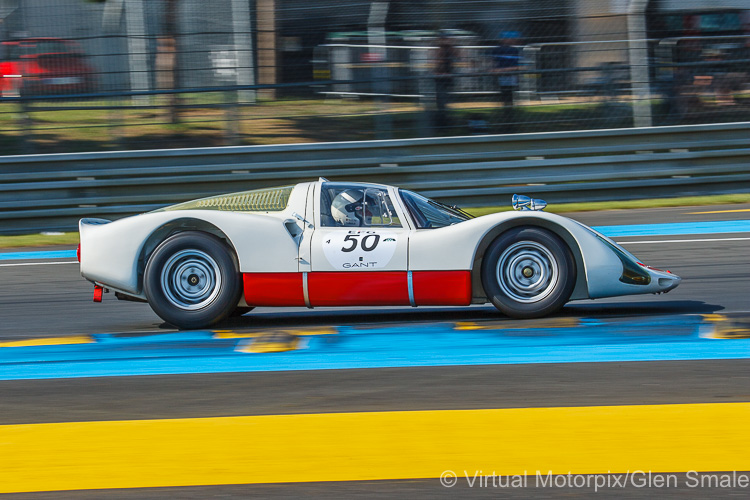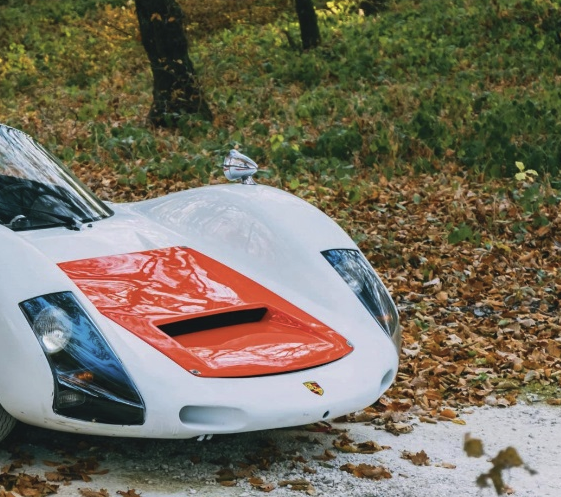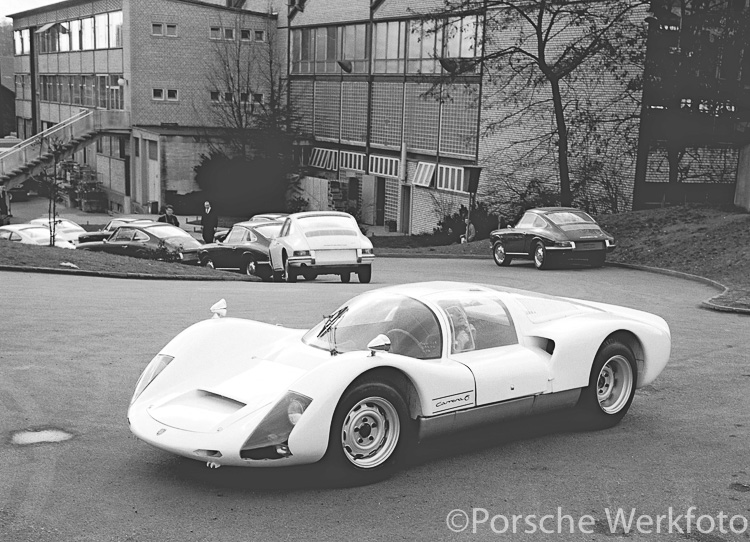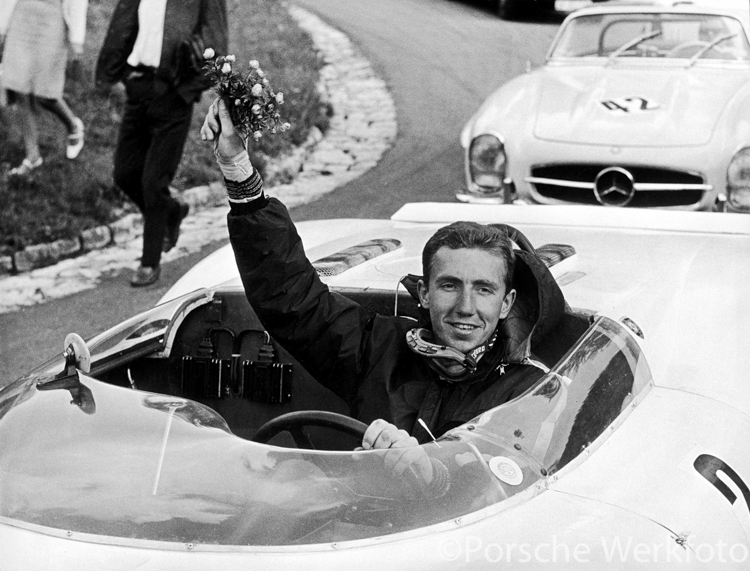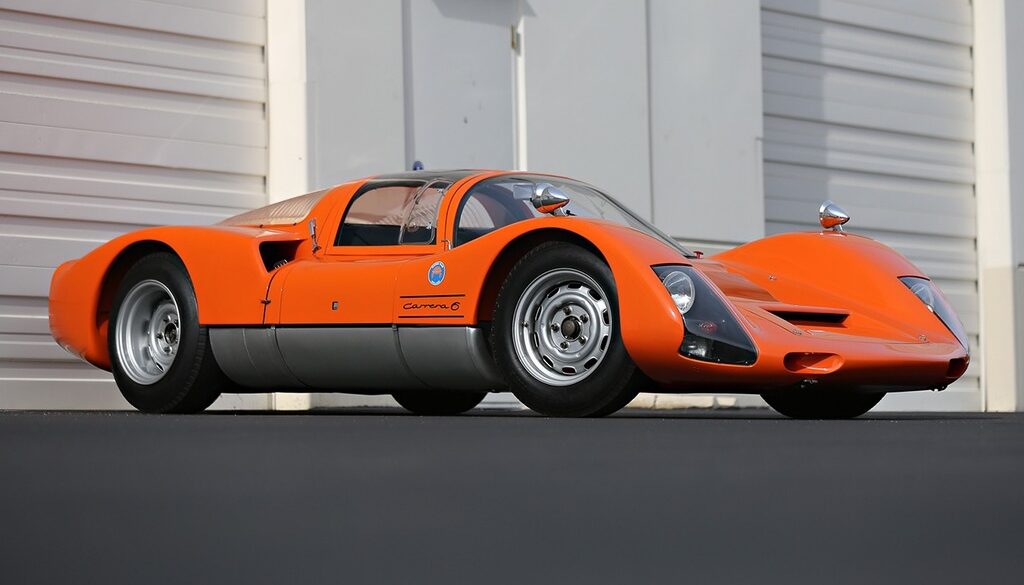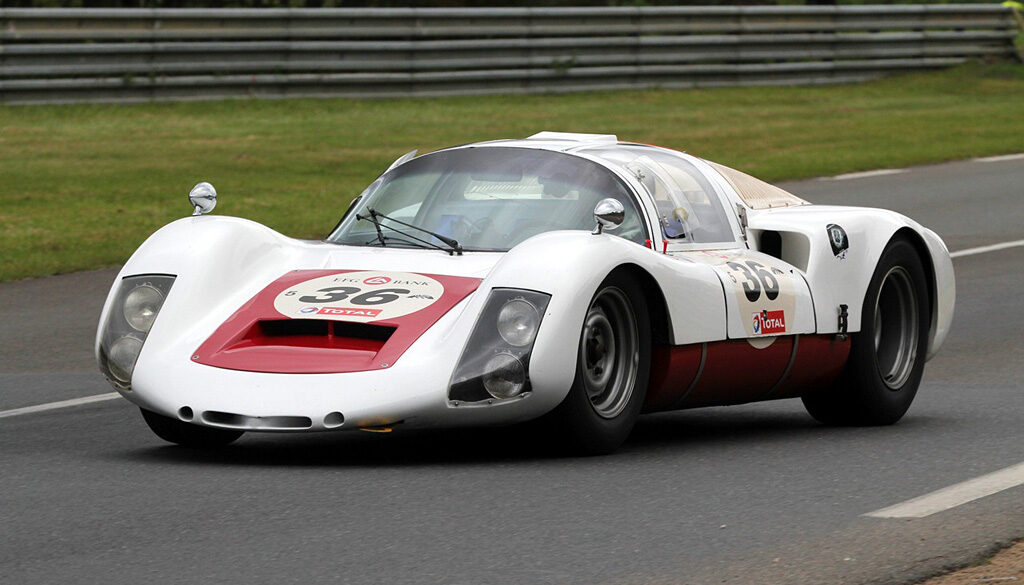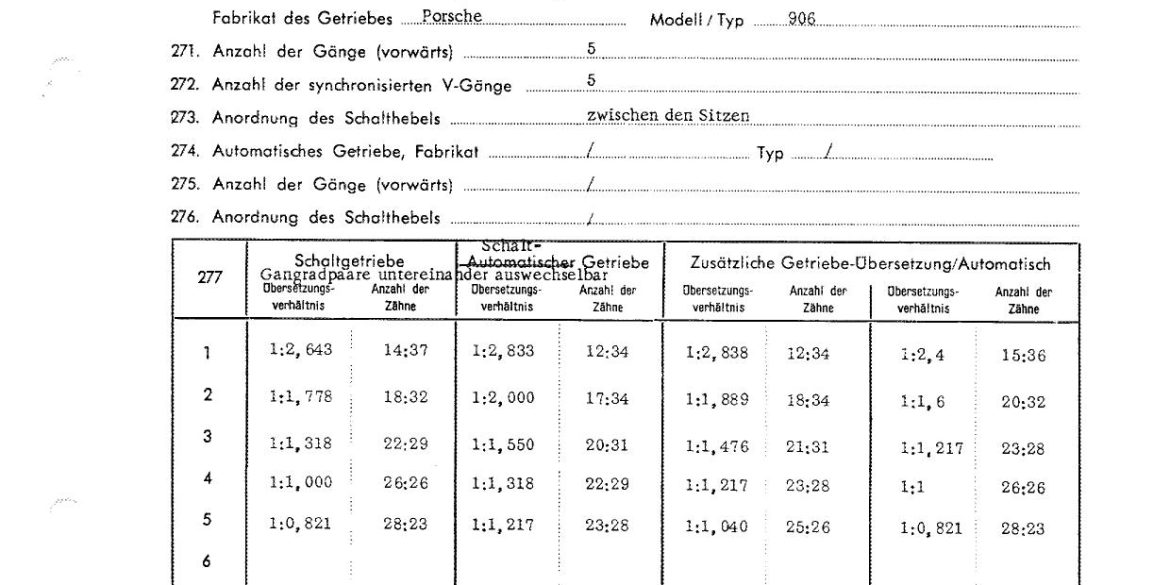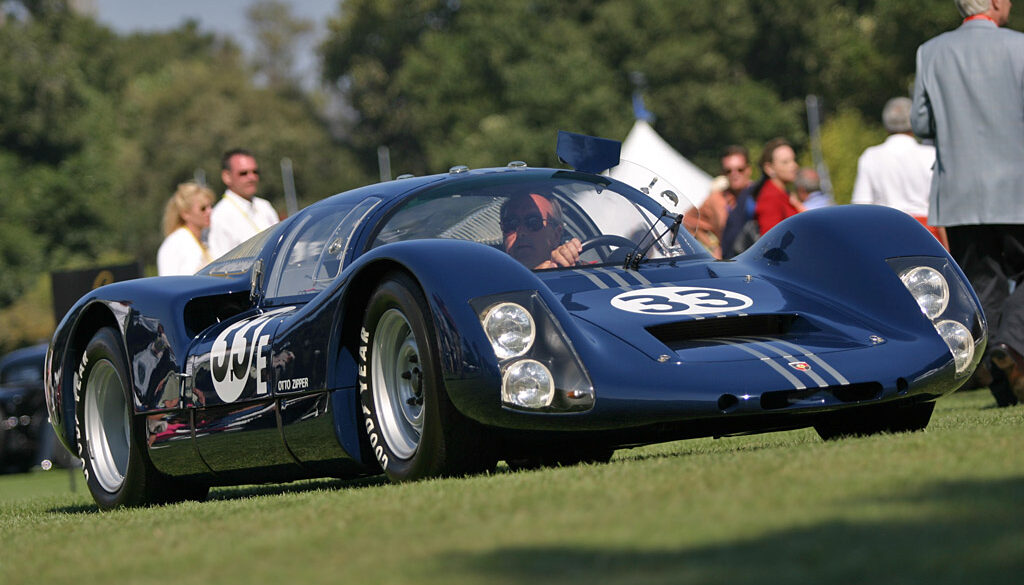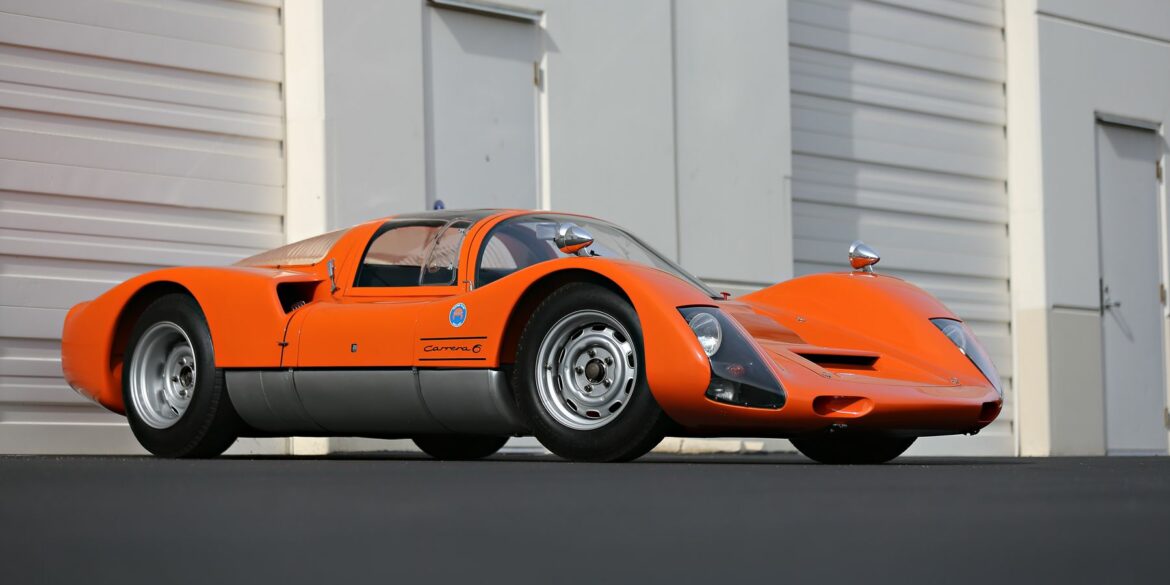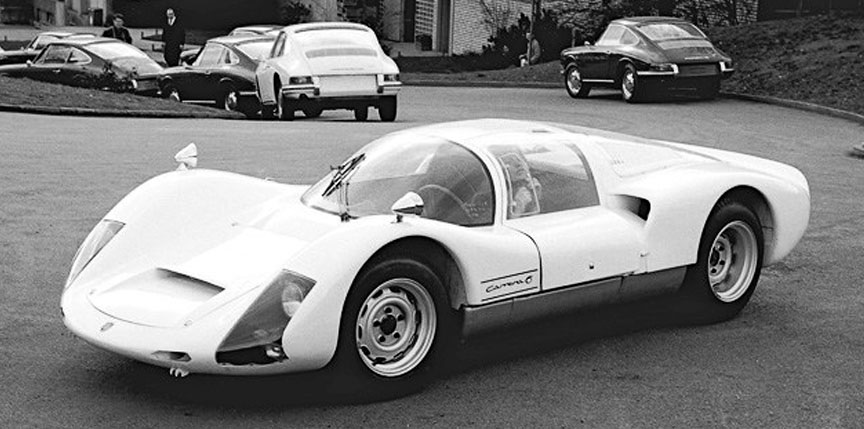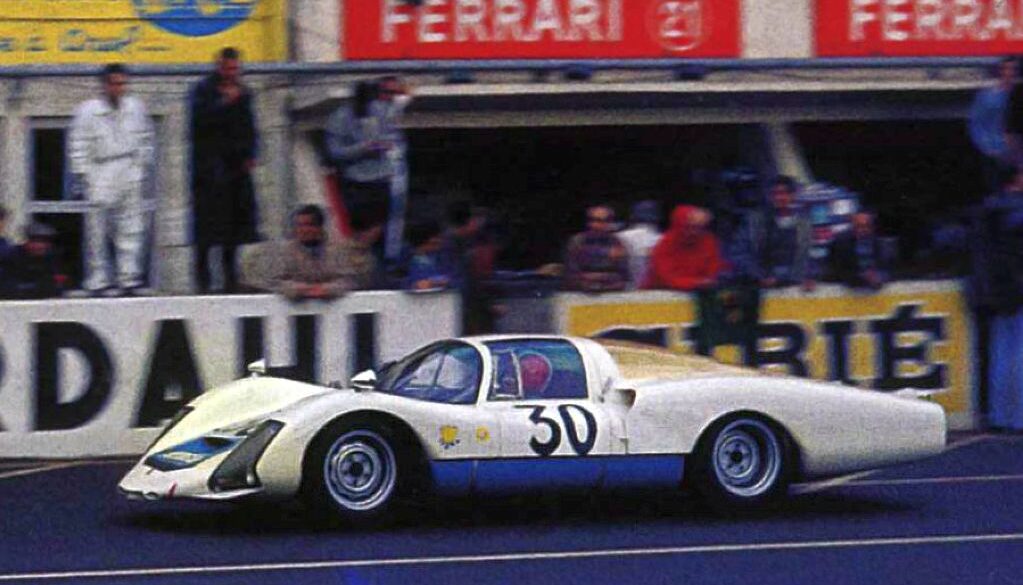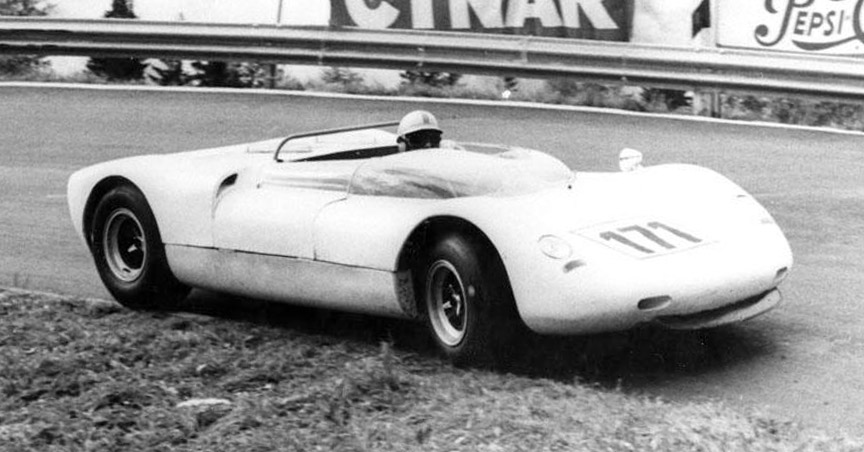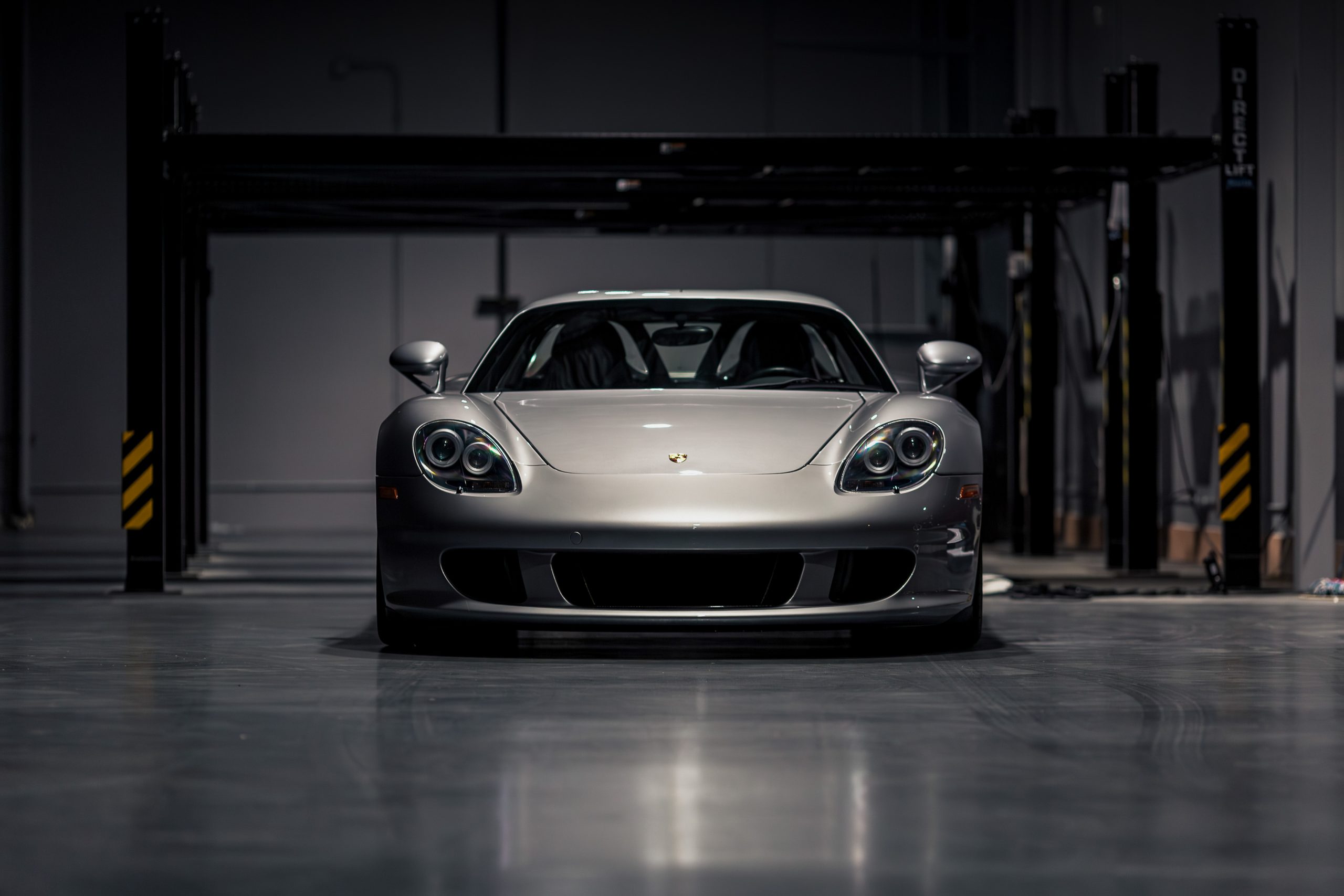This Porsche race car was constructed between 2022 and 2023 using frame components and body panels from the 1966 Porsche 906 that was converted to Spyder form by Alwin Springer for Vasek Polak in 1970. After being campaigned by Polak to a pair of SCCA wins in 1970, the original...
Offered for auction at Bonhams Cars on October 12 with an estimated value of up to $2,600,000, this 1966 Porsche 906 Carrera 6, chassis 906-017, is one of the earliest and one of the most significant in the model’s history. Built as the second 906, it served as a factory...
906: Born to Race Considered one of the most distinctive designs of the 1960s, the Porsche Carrera 6, more popularly known as the 906, was certainly also one of the most remarkable pieces of German engineering. As is already well known, the origins of the model can be traced back...
Highlights Recommissioned by Canepa to build the ultimate Porsche prototype street car Over $600,000+ invested in engineering, design, custom upgrades, and restoration Extensive upgrades for dramatically improved street drivability and functionality All upgrades engineered to preserve the original chassis and be able to 100% revert back to period-correct race configuration...
Few race cars have left as lasting an impact as the 1966 Porsche 906, also known as the Carrera 6. Built as Porsche’s answer to the competitive world of endurance racing, the 906 combined lightweight engineering, aerodynamic efficiency, and pure performance, making it a dominant force on the track. Today,...
Background Ferdinand Piëch, a grandson of Dr. Ferdinand Porsche, joined Porsche in 1963, determined to elevate his family’s firm to prominence on the international racing scene. When substantial changes to the FIA regulations for 1966 created additional opportunities for Porsche, Piëch and Helmuth Bott set out to build an entirely...
The Porsche 906 was officially marketed as Carrera 6 and was a racing model. Like the 904, the Porsche 906 was to receive homologation for the sports car class of the sports car world championship. The 906 was produced for the 1966 World Championship of Makes. It was designed for the...
Developed for endurance sports car racing, the 906 was a street-legal racing car that raced in the FIA’s Group 4 class against cars like the Ferrari Dino 206 P. On the basis of the “Ollon Villars Bergspyder”, Porsche developed the type 906 Carrera, which was soon only referred to as...
Setting the Scene The 1960s represented for Porsche, the busiest decade in the company’s history to date, with ten new road and race cars being introduced during the decade. And since those heady days, the Stuttgart manufacturer has not seen another decade in which so many different race cars were...
The Porsche 906 or Carrera 6 was the last street-legal racing car from Porsche. A total of 65 were produced in 1966, allowing the model to be homologated for FIA’s new Group 4 Sports Car category although the 906 would also compete in modified form in the Group 6 Sports...
Organizers of the Chattanooga Motorcar Festival invited the Luftgekühlt’s celebration of Brian Redman, which resulted in a number of Porsches raced by Redman in attendance. Porsches, of course, were in abundance at the Festival, including five race cars and more than 20 street cars. Incredible Porsches in attendance included: Porsche...
In the mid-1960s, as fuel injection systems swiftly replaced carburetors, Porsche enlisted Bosch to install a state-of-the-art slide-valve injection system in its 906, resulting in the 906E. This modification occurred as part of the transition from Weber carburetors. Concurrently, four 906Es were manufactured to participate in the 1967 Daytona and...
Lightweight racer is born During the 1960s, Ferdinand Piëch, the head of Porsche Research and Development, spearheaded the development of a new generation of lightweight race cars. By utilizing advanced materials and taking advantage of regulation changes, Piëch’s team created race cars with tubular frames and unstressed fiberglass bodies, offering...
By Miles Collier The Mighty Porsche Carrera 6 I’ve had my 1966 Porsche Carrera 6 (906-125) in restoration for the last four or five years. It’s hard to remember such things across a gulf of time so fantastic. But, as inevitably as the Himalayas will finally erode into foothills, restoration...
Prototype 906: intermediate – Porsche 904/8 Bergspyder chassis 906-010 No Subscription? You’re missing out Get immediate ad-free access to all our premium content. Get Started Already a Member? Sign in to your account here....
Porsche 906 Carrera 6 brutal sound!! This video I recorded in April this year during Porsche days 2010 at circuit Spa Francorchamps (Belgium) I recorded this very rare and unique Porsche 906 Carrera 6. The Porsche 906 or Carrera 6 was the last street-legal racing car from Porsche. It was...
1966 Porsche 906 Carrera 6 – Action & Pure Sound! I have filmed this wonderful 1966 Porsche 906, also called 6, owned by the French Jean Cyril Rocheruring during the 2015 Vernasca Silver Flag. The car, which replaced the 904, was equipped with a 1991cc six-cylinder air-cooled boxer engine which...
1966 Porsche 906 Carrera 6 – Hillclimb Action & Pure Sound! I have filmed this amazing 1966 Porsche 906 Carrera 6 in action during the latest 43° Alpe del Nevegal 2017 hillclimb race among the historic cars group. The car, driven by Mario Sala from Scuderia Bologna Squadra Corse is...
Porsche 906: Piëch to Peak Independence Pass is the second highest crossing of the Continental Divide in the United States at an altitude of 12,095 feet, and twists its way through the mountains in a series of switchbacks, hairpins, long sweeping turns, and various elevations and grades. Round trip, it...
Porsche 906 Carrera 6 at Nürburgring For the first time in nearly 10 years, this 1966 Porsche 906 got to stretch its legs. After some mild preparation by CPR Classic, this 906 took to the track for a number of parade laps at The Thermal Club, in Southern California. As...
Porsche 906 Stretching It’s Legs For the first time in nearly 10 years, this 1966 Porsche 906 got to stretch its legs. After some mild preparation by CPR Classic, this 906 took to the track for a number of parade laps at The Thermal Club, in Southern California. As you...
Porsche 906E Le Mans Classic Porsche 906E n°906-157 First of the four 906 fitted with injection engine, first race: the 24h of Daytona 1967 driver: Jochen Rindt and Gerard Mitter. Finished 17th in performance index plateau 5 Le Mans Classic 2012...
Porsche 906 Carrera 6 Pure sounds...
The 906 and Piëch’s lightweight revolution 29-year-old Ferdinand Piëch became the new head of Porsche Research and Development. His vision was to create an entirely new generation of race cars. The 906 Carrera 6 kept the basic layout of the 904, with the engine mounted ahead of the transaxle for...
1966 Porsche 906 Carrera 6 Sound In Action On Hillclimb I saw this Porsche Carrera 6, or 906, during two Italian hillclimbs, the 2014 Trofeo Vallecamonica and the 2014 Alpe del Nevegal. The car is moved by a 2.0 litre flat-6 engine which produces 210 bhp at 8000 rpm on...
Old Soul – The Ford v. Ferrari Porsche 906 A short documentary to bring out the old soul in us all. Old Soul features Tory Alonzo and his a replica Porsche 906, and delves into automotive history, engineering and the legacies a well-crafted car can leave behind. The replica Porsche...
No Subscription? You’re missing out Get immediate ad-free access to all our premium content. Get Started Already a Member? Sign in to your account here....
No Subscription? You’re missing out Get immediate ad-free access to all our premium content. Get Started Already a Member? Sign in to your account here....
Porsche 906 LH Coupé Specifications The 906 LH was capable of achieving 174 mph/280 km/h with its 2-litre engine (906 K: 165 mph/265 km/h). At high speed the long tail started to create lift (opposite to downforce), which made the car go fast on the straight, but was dangerous to...
Porsche 906/8 Specifications Four factory 906s received an air-cooled eight-cylinder boxer engine of the type 771, which was already used in the 904/8. The engine had a displacement of 2.2 liters with a compression of 10.2: 1 and vertical shafts that drove the two overhead camshafts per cylinder bank. The...
Porsche 906 E Specifications The technology in racing during the mid 60s was shifting from carburetors to fuel injection. Porsche began experimenting and after a lot of development had developed a competitive system. The Bosch injection system proved to be the most reliable and produced the best results. Though the...
Porsche 904/8 (chassis #008) photographed in the Porsche Museum, September 2020 F.A. ‘Butzi’ Porsche, the eldest son of Ferry and Dorothea Porsche, joined the family business in 1958 having shown great interest in the field of industrial design. Working under the direction of Erwin Komenda, F.A. Porsche set about learning...
Porsche Unseen by Jan Karl Baedeker & Stefan Bogner – © Delius Klasing Verlag Consider what it would be like to be given the opportunity to glimpse behind the scenes, into Porsche’s inner design sanctum, where the Porsche designers imagine the models of the future. There are 120 designers who...
Le Mans: The Official History 1960–69 by Quentin Spurring © Virtual Motorpix/Glen Smale This edition of Quentin Spurring’s fabulous series covering the Le Mans 24 Hours decade-by-decade, concerns the 1960s. Many will agree that the decade, 1960 to 1969, saw some of the most innovative race cars, and with relatively...
Motor Racing – The Pursuit of Victory 1963-1972 by Steve Wyatt © Veloce Publishing Limited The age of motorsport, when an aspiring photographer could amble around the paddock snapping world championship drivers, team personnel and stripped race cars, is long gone. Today, even with the required media accreditation, you have...
Professor Ferdinand Porsche (centre) with F. A. ‘Butzi’ Porsche (left) and Ferdinand Piëch (right), ca. 1949 Ferdinand Karl Piëch was born in Vienna, Austria, on 17 April 1937, to Louise (daughter to Ferdinand and sister of Ferry Porsche) and Anton Piëch, a lawyer. He was the grandson of Ferdinand Porsche,...
© White Racers from Zuffenhausen: Porsche 904, 906, 907, 908, 909, 910 In 2018, we reviewed one of the other books in this series, Porsche Spyders 1956-1964, and this year we will have a couple more to do. White Racers from Zuffenhausen, is another in this series, and as we...
No Subscription? You’re missing out Get immediate ad-free access to all our premium content. Get Started Already a Member? Sign in to your account here....
Toine Hezemans in his Brussels home, 2015 One of the Netherlands’ most successful racers, Toine Hezemans is part of a motorsport dynasty that began with his father who raced Porsches in the 1950s. This family tradition continued with Toine who began racing 911s in the late ‘60s, but after his...
This photo of the #50 1966 Porsche 906 Carrera 6 driven by Sabino Ventura (Ita) was taken on Friday 6 July. The Porsche 906 was running in Grid 4 of the 2018 Le Mans Classic...
No Subscription? You’re missing out Get immediate ad-free access to all our premium content. Get Started Already a Member? Sign in to your account here....
The formidable Carrera 6 outside the Porsche headquarters, Stuttgart Zuffenhausen, 1966 The Carrera Six, as Porsche officially called the 906, was a radically different car from its predecessor, the 904 GTS. The 904 was a sleek glass fibre bodied racer penned by Butzi Porsche, and it took over as Porsche’s...
Mont Ventoux, 18 June 1967 – Rolf Stommelen won this hillclimb driving a Porsche 910/8 Bergspyder Rolf Stommelen was one of Germany’s leading racing drivers for over a decade and if as the title (above) of his biography implies, he could drive anything anywhere, this was largely true. Although his...
Porsche 906 Carrera 6 Pictures...
Porsche 906 E Pictures...
The technology in racing during the mid 60s was shifting from carburetors to fuel injection. Porsche began experimenting and the Bosch injection system proved to be the most reliable. Though the performance did not increase, it did provide superior throttle response over the Weber carburetors, and it was easier to tune. To compliment the new engine, a new body was created which reduced drag levels. Porsche dubbed the resulting car, with its new engine and body work, the 906E, with the 'E' representing 'Einspritzung, or injection.
Developed for endurance sports car racing, the 906 was a street-legal racing car that raced in the FIA's Group 4 class against cars like the Ferrari Dino 206 P. They often won their class behind the much larger prototypes such as the Ford GT40 Mk II and Ferrari 330 P3/4. Based off the same principles as the 904, the 906 used a boxed steel chassis with a fiberglass body that added rigidity to the design. The greatest success of the Porsche Carrera 6 "Standard" was undoubtedly the victory at the Targa Florio 1966.
Four factory 906s received an air-cooled eight-cylinder boxer engine of the type 771, which was already used in the 904/8. The engine had a displacement of 2.2 liters with a compression of 10.2: 1 and vertical shafts that drove the two overhead camshafts per cylinder bank. The maximum output was 198 kW (270 hp) at 8600 rpm. All vehicles were equipped with a five-speed manual transmission of the type 906 and a ZF limited-slip differential . The gear ratios could be exchanged as required without removing the gear.
The 906 LH was capable of achieving 174 mph/280 km/h with its 2-litre engine (906 K: 165 mph/265 km/h). At high speed the long tail started to create lift (opposite to downforce), which made the car go fast on the straight, but was dangerous to drive. At Le Mans, the 906 LHs with their experimental bodies competed in the 2-litre prototype class.
A spider body was fitted, and its inaugural appearance was at the Swiss Ollon-Villars hillclimb where it was met with disappointing results that were clearly to-do with poor testing and rushed development. The Ferrari's easily dominated the event and sent Porsche and their ''Ollon Villars Spyder' back to the drawing-board.


